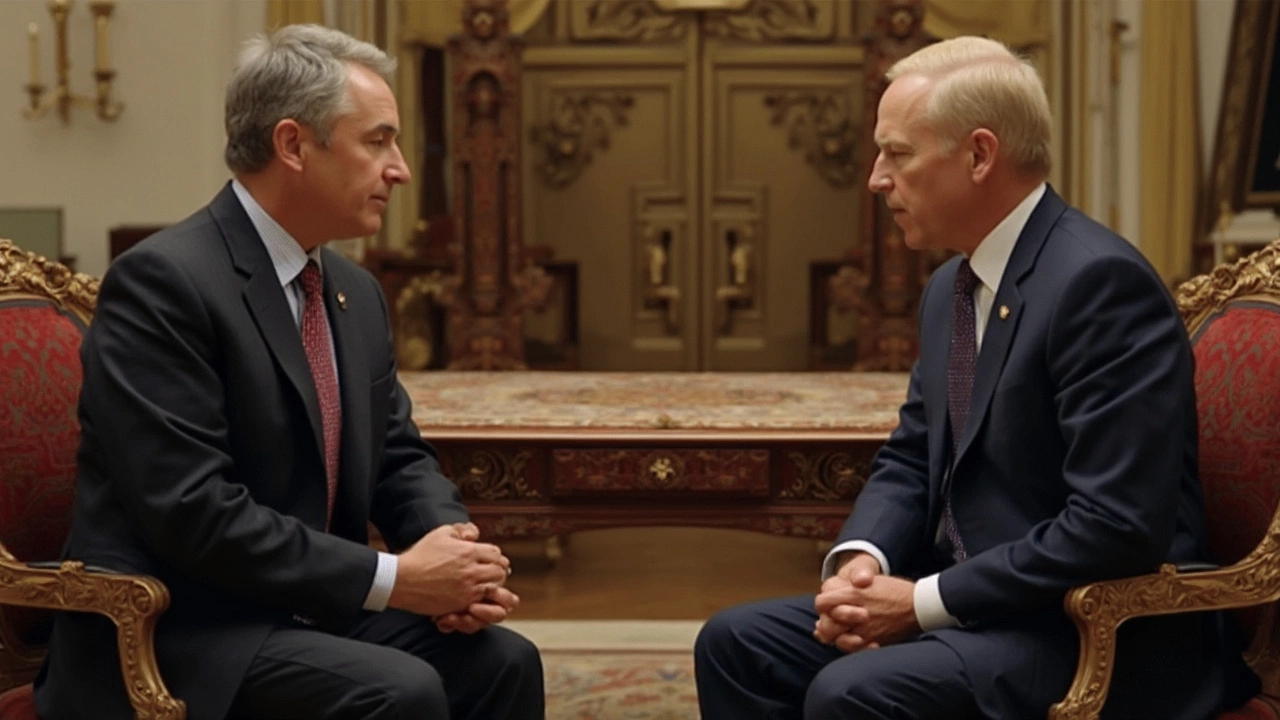In a dramatic diplomatic showdown at the White House on February 11, King Abdullah II of Jordan made headlines by firmly opposing President Donald Trump's ambitious but controversial proposal to relocate Palestinians from Gaza. Trump's strategy, dubbed a vision to transform Gaza into the 'Riviera of the Middle East,' intended for a massive resettlement of the region’s Palestinian population, proposing they move to Jordan and Egypt. This suggestion was met with immediate resistance not just from Jordan but from numerous Arab nations and influential global leaders.
King Abdullah didn't mince words in his refusal, standing by Jordan's long-held dedication to a two-state solution and warning about the dangers of any proposal hinting at ethnic cleansing. The king's remarks echoed a widespread consensus among Arab countries against the idea of forced displacement. But Abdullah didn’t stop there—instead of merely saying no, he offered a glimmer of hope through humanitarian efforts. By proposing to welcome around 2,000 critically ill Palestinian children from Gaza for medical treatment, he framed the gesture as purely humanitarian, distancing it from any notions of mass resettlement.
This offer by King Abdullah came amidst a backdrop of high-stakes negotiations with Trump, who initially threatened to cut off U.S. financial aid to both Jordan and Egypt if they didn't agree to the Palestinian resettlement plan. However, in light of Abdullah's gesture, Trump softened his position, commending the humanitarian move as 'really a beautiful gesture' and stepping back from his aid threats.
The tensions in this diplomatic dance weren’t confined to just boardroom discussions. On the streets of Amman, protests broke out, reflecting the heightened awareness and unease among Jordanians. The scenario underscored the possible regional unrest that could ensue if such demographic shifts were forced upon Jordan. Government officials didn’t shy away from acknowledging this tension, suggesting they might forgo U.S. aid if it came with strings attached related to the resettlement proposal.
The domino effect of Trump’s plan was far-reaching, impacting U.S.-Arab relations across the Middle East. Reports emerged of Egypt crafting a counter-proposal, while Arab nations geared up for emergency talks slated to occur in Riyadh. As reactions continued to pour in, UN Secretary-General António Guterres voiced concerns, cautioning against actions resembling ethnic cleansing, and emphasized the need for a sovereign Palestinian state.
The developments underscore not just a clash of diplomatic wills but the potential for long-standing repercussions on international relations and efforts towards lasting peace in the region. As the world watches, the responses from international leaders will influence the future course of this already volatile issue.





